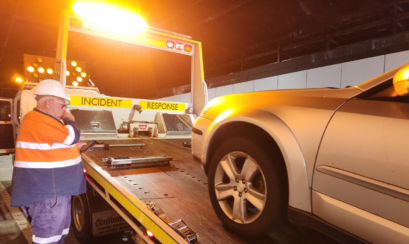Many of us saw the media coverage about the recent chemical leaks in the Newcastle area. Orica, a company that produces ammonium nitrate for the mining industry, leaked a toxic chemical on the 8th August. Then, on the 19th, it spilled effluent containing arsenic into the Hunter River.
Nearby residents weren’t told about the first leak for 3 days. Though testing later indicated no health threat to the community, concerns have certainly been raised about our pollution laws.
Most notably; when should we be told about pollution incidents that could affect our health?
The Protection of the Environment Operations Act (POEO) covers pollution issues in NSW. And the Office of Environment and Heritage (OEH) is the government body that administers it (previously the EPA).
Companies involved in the chemical industry, like Orica, carry out what are known as “scheduled activities”. They receive special licences from the OEH (once it’s assessed the environmental risk) to carry out their work. In other words, they’re allowed to pollute, but not in excess of what their licence says. It’s only if there’s a pollution incident outside their normal activities that they have to report it.
According to the POEO Act, if there’s a pollution incident that involves “actual or potential harm to the health or safety of human beings or to ecosystems that isn’t trivial”, then the regulatory authorities must be notified “as soon as practicable” after the company becomes aware of it.
The Act doesn’t mention when the public need to be told. That’s pretty much up to the government’s discretion.
Companies can be fined up to $1 million for breaching the notification requirement. Of course, “as soon as practicable” is by no means clear cut – it could be interpreted differently. But past judgements show that some judges have taken it to mean “as soon as you possibly can”, issuing larger fines for the delay in telling authorities than for actually polluting.
Still, the wording has many concerned. The Greens recently put forward a Bill to change it from “as soon as practicable” to “immediately after becoming aware”. That would make the legislation consistent with NSW work health and safety laws, where serious incidents must be reported immediately.
For causing pollution, the penalty depends on how harmful the activity to the environment, and on the circumstances surrounding the incident. For example, a company could be fined $5 million for a serious and deliberate act. Less if it was caused by negligence. An honest and reasonable mistake can be a defence for some pollution offences, although it’s difficult to prove.
An inquiry is underway into the Orica spills, and how the industry overall responds to serious pollution incidents.
We’ll see if our environmental laws change as a result.
For more information please see our 2024 article Tougher penalties for environmental crime now in force in NSW.












